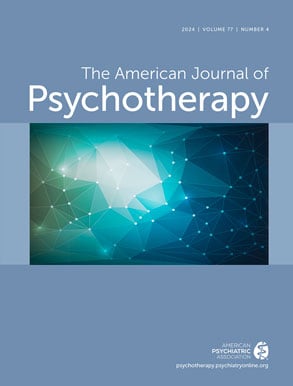Child and Adolescent Psychoanalysis as Contemporary Psychotherapy: Insights From a Semistructured Interview of Practitioners
Abstract
Background
Precedents to This Work
Through systematic, empirical research, Wallerstein was able to reveal the way adult psychoanalysts practice and thus encourage the field to reorganize and to mature to an increasingly developed identity of flexibility and accommodation.The therapeutic modalities of psychoanalysis, expressive psychotherapy, and supportive psychotherapy hardly exist in ideal or pure form in the real world of actual practice … [treatments] are intermingled blends of expressive-interpretative and supportive-stabilizing elements … and … the overall outcomes achieved by more analytic and more supportive treatments converge more than our usual expectations for those differing modalities would portend; and the kinds of changes achieved in treatment from the two ends of this spectrum are less different in nature and in permanence than is usually expected. (p. 205)
Rationale for This Work
Methods
Survey and Interview
Selection of Subjects and Confidentiality
Data Analysis
Results
Demographic Characteristics
Practice
Qualitative Findings
Active, flexible work with parents, including addressing ruptures in treatment.
When I was a child and adolescent candidate we didn’t work actively with the parents. We saw them basically as informants about the child’s life [for information] which we knew the child would not share with us. There was no parent guidance and no attempts to help the parents deal with developmental or parental issues. Our only goal was to insure that the parent allow the analysis to continue.
Today I do things in a very different way; I first try to understand the parent’s perspective, working with them very actively, especially with parents of little children. I help them understand what is happening and help them look at the interactions between them and their child.
Therapeutic relationship, insight, and other findings.
Discussion
Conclusions
References
Information & Authors
Information
Published In
History
Keywords
Authors
Competing Interests
Metrics & Citations
Metrics
Citations
Export Citations
If you have the appropriate software installed, you can download article citation data to the citation manager of your choice. Simply select your manager software from the list below and click Download.
For more information or tips please see 'Downloading to a citation manager' in the Help menu.
View Options
View options
PDF/EPUB
View PDF/EPUBLogin options
Already a subscriber? Access your subscription through your login credentials or your institution for full access to this article.
Personal login Institutional Login Open Athens loginNot a subscriber?
PsychiatryOnline subscription options offer access to the DSM-5-TR® library, books, journals, CME, and patient resources. This all-in-one virtual library provides psychiatrists and mental health professionals with key resources for diagnosis, treatment, research, and professional development.
Need more help? PsychiatryOnline Customer Service may be reached by emailing [email protected] or by calling 800-368-5777 (in the U.S.) or 703-907-7322 (outside the U.S.).

